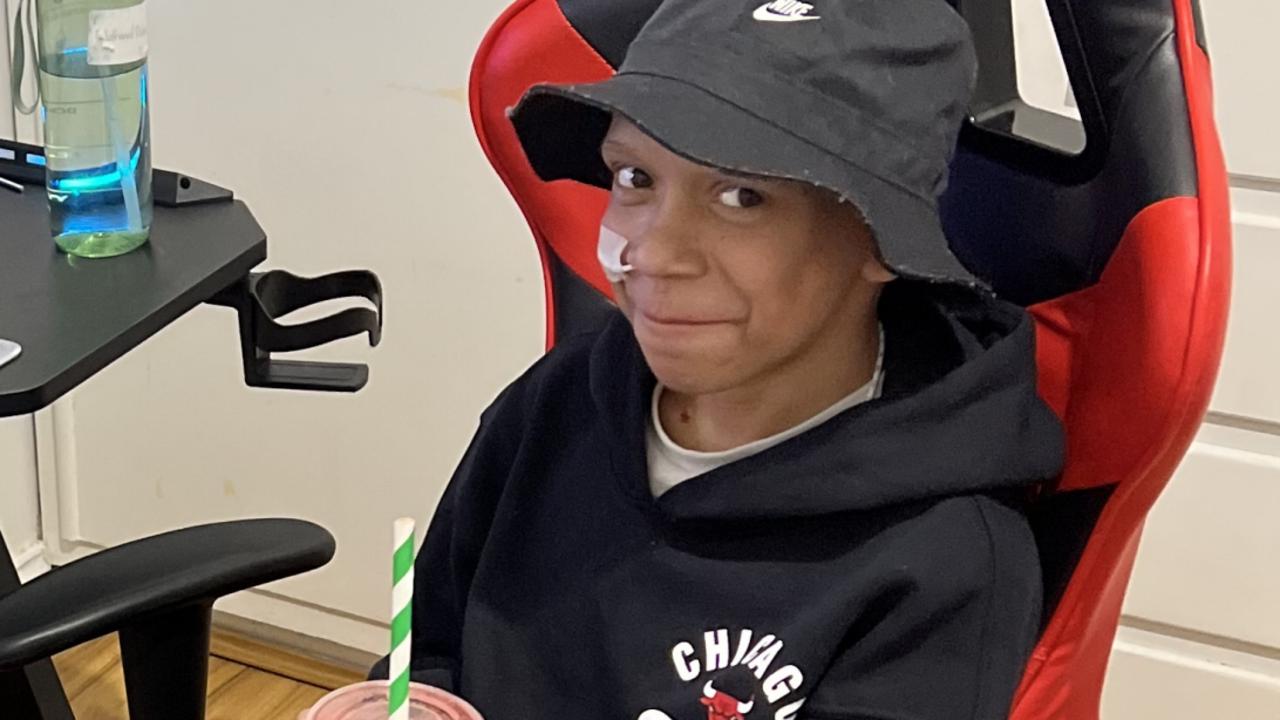Body-shamed news anchor praised for perfect on-air clapback
Experts have slammed a viewer who criticised a news reporter during a live segment, warning “it isn’t harmless or ‘just a joke’.”

Health
Don't miss out on the headlines from Health. Followed categories will be added to My News.
Experts have issued a health warning over the psychological impact of body-shaming after a TV anchor went viral for clapping back at a troll who made a cruel comment about her appearance.
Leslie Horton was in the midst of giving her usual traffic report for a Canadian TV network when she saw red and stopped to address a viewer who had sent in an email bashing her appearance.
The viewer had criticised her outfit and wrongly congratulated the journalist on her “pregnancy” – prompting Horton to speak out about the awful messages she receives while live on air.
Now a year on, the video has resurfaced as fans praise Horton for being a “role model” and bravely tackling her digital attacker.

But body-shaming can have a lasting effect on victims, warns Melbourne psychologist Carly Dober.
“Being body shamed can lead to many psychological issues, including low self-esteem, disordered eating, anxiety, depression, and self-harm and substance abuse behaviours,” she told news.com.au.
“It can impact people’s confidence and sex lives, and can lead to difficulties forming and maintaining intimate relationships.
“There are also several common misconceptions about body shaming. It doesn’t only affect women, it’s not only done by strangers, it isn’t just about weight or size and it isn’t harmless or ‘just a joke’.”

While on air, Horton – then 59 – read out the email she’d received before addressing the sender directly.
“I’m just going to respond to an email that I just got saying, ‘Congratulations on your pregnancy,” Horton said.
“’If you’re gonna wear old bus driver pants then you have to expect emails like this,’ so thanks for that.
“No, I’m not pregnant. I actually lost my uterus to cancer last year. And um, this is what women of my age look like.”
She finished by stating: “If this is offensive to you, that is unfortunate. Think about the emails that you send.”
Ms Dober, who works at Melbourne’s Enriching Lives Psychology clinic, said those who send these sort of mean messages are often sent by individuals who don’t understand the impact of their actions on others.
“Some people haven’t stopped to think about the impact of their words, some people are trying to control how others look by engaging in body shaming, some people are joining in on the public pile up and some people can be tactless and nasty,” she explained.
“Women’s bodies are also seen as up for public debate, and this misogynistic attitude means that if some women don’t live up to arbitrary and often rapidly changing benchmarks, then they risk being shamed for this.”

But many defended Horton, who is mum to a teenage daughter, and praised how she handled the situation.
A video captioned “Leslie Horton, oh the role model you are! Thank you for this awesome response” was shared on TikTok on Monday and has amassed thousands of comments from fans.
“SUCH GRACE AND CLASS… you are a QUEEN!” one wrote.
“What’s wild is that her outfit is really nice and she, herself looks really pretty. People need to chill,” another said.
As one declared: “I just know that email ruined her day and that makes me so unbelievably sad for her. She handled that with such class. She’s beautiful.”
Meanwhile others labelled the troll “savage” and “mean”.
“Handled it like a champ…not easy to respond such rudeness,” another chipped in.
“Well played! Why are people so mean to each other?” agreed someone else.

Data shows one in two young Australians have experienced some form of cyber-bullying in their lifetime, while nearly 70 per cent of young people said they have experienced appearance-related teasing.
Ms Dober said that for those who are on the receiving end of such behaviour, developing tools to help manage the impact can help.
“I encourage people to chat to safe and trusted people in their lives about what they are going through, curate their social media feed so they are seeing a diverse array of humans, manage the time they spend on social media,” she said.
“Engage in critical analysis about beauty standards and expose yourself to body neutrality, challenge stereotypes and support diversity, and to get in contact with a psychologist if needed to.”
More Coverage
Originally published as Body-shamed news anchor praised for perfect on-air clapback





